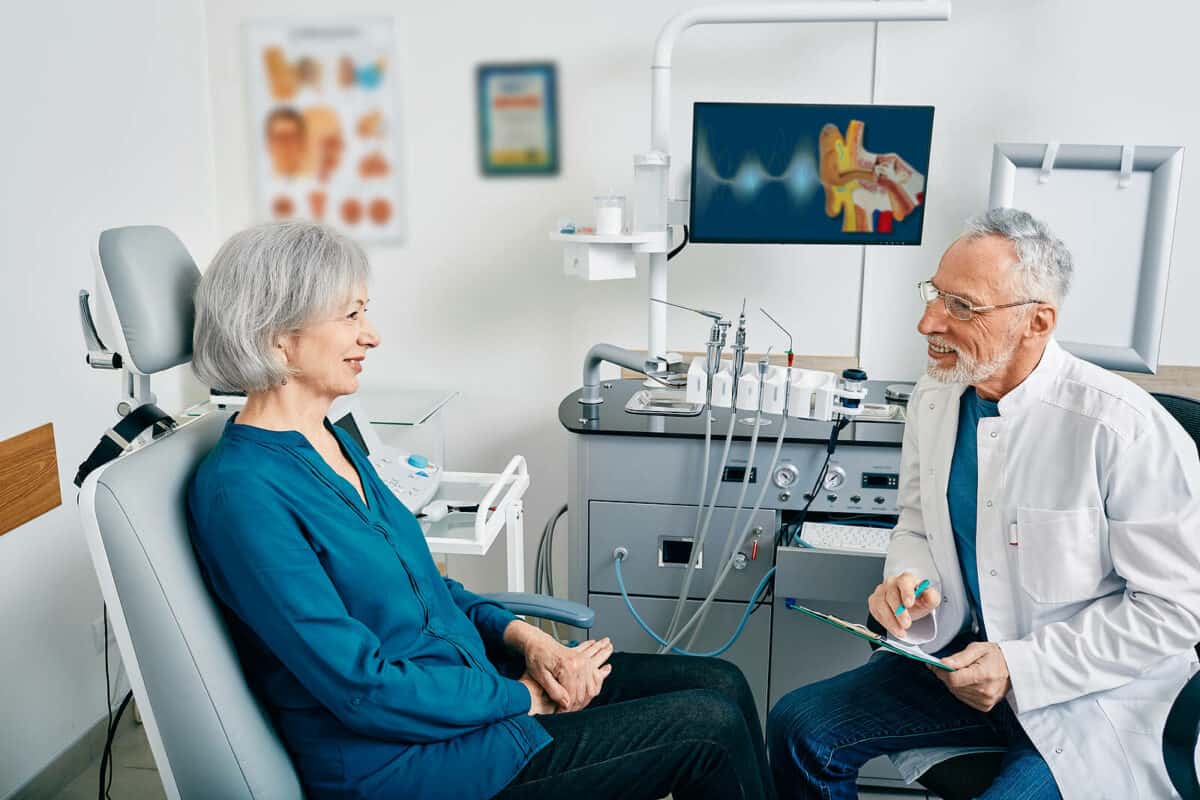- Can Swimming With Hearing Aids Be Safe? - May 7, 2025
- Why Hydration Matters for Hearing Health - April 9, 2025
- Ensuring Safe Travels with Hearing Aids - March 7, 2025
ver time, our ability to hear can undergo some significant changes. Many individuals find themselves facing the subtle yet impactful challenge of age-related hearing loss. Let’s dive into the nuances of this common condition, understand its mechanisms, see how it can impact daily life, and go over some proactive steps you can take to embrace better hearing.
The Gradual Unraveling: Mechanisms of Age-Related Hearing Loss
Age-related hearing loss, also known as presbycusis, primarily stems from changes in the inner ear. The delicate hair cells responsible for converting sound vibrations into electrical signals gradually diminish in number and function over time. This sensorineural decline often results in difficulty hearing high-pitched sounds and discerning speech in noisy environments.
Vascular Factors
The intricate network of blood vessels supplying the inner ear can be affected by age-related vascular changes, impacting the nourishment of vital structures responsible for hearing. Reduced blood flow to the inner ear contributes to the progression of hearing loss.
Genetic Predisposition
Genetic factors also play a role in age-related hearing loss. Individuals with a family history of hearing impairment may be more susceptible to experiencing hearing challenges as they age.
Impact on Daily Activities
One of the most noticeable effects of age-related hearing loss is the challenge it poses to effective communication. Difficulty hearing soft or high-pitched sounds, along with the diminishing ability to differentiate between consonants, can make conversations, especially in group settings, a source of frustration.
Social Isolation
Gradually withdrawing from social situations due to communication difficulties can lead to social isolation. Individuals may avoid gatherings, public events, or even intimate conversations, impacting their overall quality of life.
Cognitive Load
Straining to hear and understand conversations places an additional cognitive load on individuals with age-related hearing loss. This increased cognitive effort can contribute to feelings of fatigue and mental exhaustion.
Proactive Steps Toward Better Hearing
Routine hearing checkups are instrumental in monitoring and addressing age-related hearing loss. Early detection allows for timely interventions and the implementation of strategies to preserve existing hearing abilities. Treating hearing loss as soon as possible is one of the best ways to preserve your hearing health and improve your quality of life.
Hearing Aids
Hearing aids stand as powerful allies in the journey toward better hearing. Technological advancements have led to discreet, user-friendly devices that can significantly enhance the auditory experience, making conversations clearer and more enjoyable.
Aural Rehabilitation
Engaging in aural rehabilitation programs, which may include auditory training exercises and counseling, can help individuals adapt to changes in their hearing abilities. These programs empower individuals to navigate various listening environments with confidence.
Embracing the New Normal: Lifestyle Adjustments
Making simple adjustments to the living environment can mitigate the impact of age-related hearing loss. These modifications may include reducing background noise, using assistive listening devices, and optimizing lighting for better visual cues during conversations.
Adopting effective communication strategies has become more important than ever. This includes maintaining eye contact, facing the speaker, and advocating for one’s hearing needs in various social settings.
Fostering understanding among family and friends is also crucial. Educating loved ones about the challenges of age-related hearing loss encourages empathy and creates a supportive network.
Cultivating Resilience and Positivity
Recognizing the interconnectedness of hearing health with overall well-being emphasizes the importance of maintaining a healthy lifestyle. Regular exercise, a balanced diet, and stress management contribute to overall resilience.
Technology continues to play a pivotal role in addressing age-related hearing loss. From smartphone applications designed to amplify sound to captioning services for enhanced communication, embracing technological solutions enhances daily living.
Active participation in community and social activities fosters a sense of belonging and combats social isolation. Joining clubs, attending cultural events, and engaging in hobbies can all contribute to a vibrant and fulfilling life.
A Harmonious Journey with Age-Related Hearing Loss
During the aging process, embracing the changes brought about by age-related hearing loss becomes an integral part of the journey. Navigating this soundscape requires a combination of proactive steps, technological advancements, and a resilient mindset.
If you think you may have a hearing loss, contact us today. Book a hearing test to find out more about your hearing loss and the causes of your hearing loss, then explore your treatment options.

